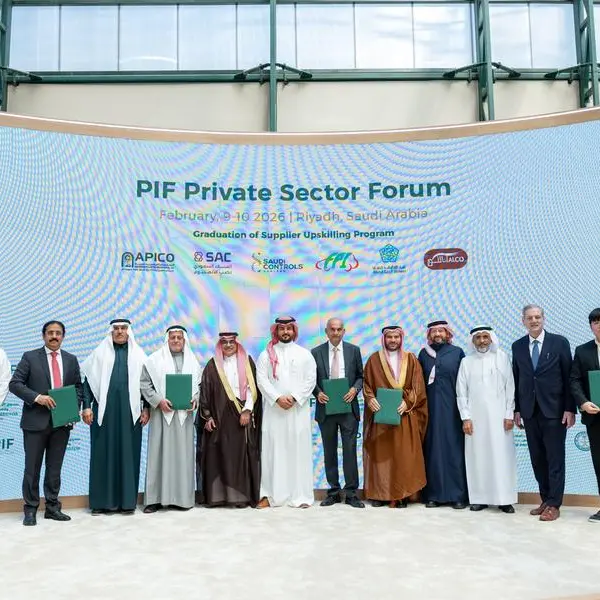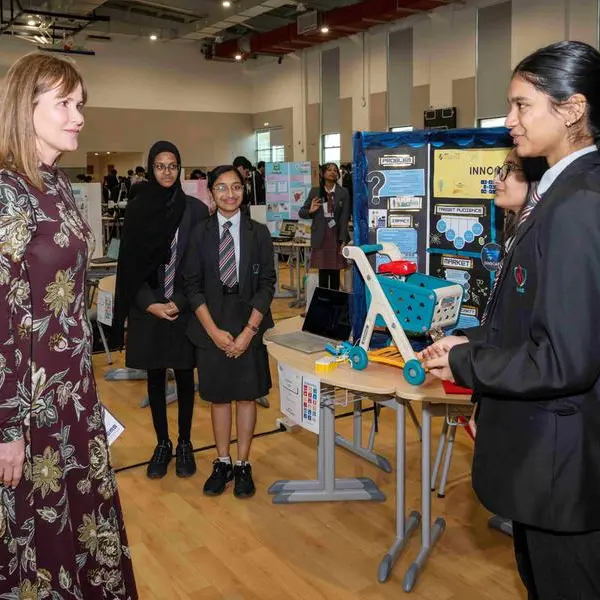PHOTO
Riyadh, Saudi Arabia – The Jameel Clinic, the epicentre of artificial intelligence (AI) in healthcare at the Massachusetts Institute of Technology (MIT), hosted today, Tuesday December 19th, the first conference in the Kingdom of Saudi Arabia to drive the use of artificial intelligence in healthcare, marking the second edition of AI Cures MENASA, a one-day conference which aims to explore the integration of AI into healthcare with a focus on the Middle East, North Africa, and South Asia (MENASA) region.
Hosted in Riyadh, the conference was held by the Jameel Clinic in partnership with Community Jameel, the Ministry of Health, the SEHA Virtual Hospital, King Abdulaziz City for Science and Technology and King Faisal Specialist Hospital and Research Centre. Through a number of panel discussions, the convening highlighted the latest breakthroughs of AI-enabled health technologies and their transformative potential in reshaping the future of the healthcare sector.
In addition, the conference celebrated the Jameel Clinic’s fifth anniversary and brought together the combined expertise of researchers, specialists, some of the Kingdom’s hospital directors, and officials from the Ministry of Health to explore the latest advancements in the field of AI in healthcare, including medical diagnostics, treatment planning and patient care.
During the event, participants discussed the potential of AI in transforming the future of healthcare by delivering efficient and accurate solutions and treatments, especially as the need for more personalised and precise medicine has grown globally.
In alignment with the Jameel Clinic’s mission to democratise access to AI-driven healthcare solutions worldwide, the AI Cures MENASA conference served as a platform for the international expansion of the Jameel Clinic AI Hospital Network, an initiative launched in 2022 by the Jameel Clinic with support from Community Jameel and Wellcome.
The network is designed to build partnerships with hospitals globally to ensure new healthcare technologies are developed and deployed equitably across the world, with a focus on low- and middle-income countries, to improve the quality of care and save lives.
Hassan Jameel, vice chairman of Community Jameel, said: “Since its establishment five years ago, the Jameel Clinic has made significant strides in the advancement of healthcare through artificial intelligence. The Jameel Clinic’s AI Cures initiative aims to translate these incredible achievements into everyday standard care for patients. The AI Cures MENASA conference, the Kingdom’s first AI and health conference, will work to partner with hospitals here to introduce groundbreaking tools powered by AI which will transform the healthcare landscape in the country, in line with the aims of Vision 2030.”
Ignacio Fuentes Ribas, executive director at the MIT Jameel Clinic, said: “We are delighted to celebrate the fifth anniversary of the Jameel Clinic and host this one-of-a kind conference and for the first time in Saudi Arabia’s capital, Riyadh, alongside esteemed scientists, decision-makers, public health pioneers, and leading industry figures. The groundbreaking endeavors led by the Jameel Clinic in the past five years now stand at the forefront of healthcare revolution. We are excited to see the Jameel Clinic AI Hospital Network extend its reach throughout the MENASA region, deploying clinical AI tools worldwide. This initiative not only showcases the transformative potential of AI in medicine but also underscores our commitment to reducing healthcare disparities on a global scale."
Co-founded by MIT and Community Jameel in 2018, the Jameel Clinic developed several groundbreaking AI tools using deep learning techniques. Most recently, the Jameel Clinic deployed the pioneering AI tools, Mirai and Sybil. Mirai can assess breast cancer risk up to five years earlier, and more accurately, than current state-of-the-art screening techniques. Sybil is capable of assessing lung cancer risk up to six years in advance, with near-perfect accuracy for patients who are one year away from developing lung cancer.
As part of its efforts to uncover the healthcare transformation potential by developing AI technologies for early diagnostics, drug discovery, as well as care personalisation and management, the Jameel Clinic is working on a number of cutting-edge AI tools, including the development of a model which can detect prostate cancer, adding to its impressive list of breakthrough discoveries and achievements.
About Jameel Clinic:
The Abdul Latif Jameel Clinic for Machine Learning in Health (Jameel Clinic) is the epicentre of artificial intelligence (AI) and healthcare at MIT. It works to develop AI technologies that will change the landscape of healthcare. This includes early diagnostics, drug discovery, care personalisation and management. Building on MIT’s pioneering history in artificial intelligence and life sciences, the Jameel Clinic works on novel algorithms suitable for modelling biological and clinical data across a range of modalities including imaging, text and genomics. While achieving this goal, the team strives to make new discoveries in machine learning, biology, chemistry and clinical sciences. The Jameel Clinic was co-founded in 2018 by MIT and Community Jameel, the independent, global organisation advancing science to help communities thrive in a rapidly changing world.
About Community Jameel:
Community Jameel advances science and learning for communities to thrive. An independent, global organisation, Community Jameel was launched in 2003 to continue the tradition of philanthropy and community service established by the Jameel family of Saudi Arabia in 1945. Community Jameel supports scientists, humanitarians, technologists and creatives to understand and address pressing human challenges in areas such as climate change, health and education.
The work enabled and supported by Community Jameel has led to significant breakthroughs and achievements, including the MIT Jameel Clinic’s discovery of the new antibiotics halicin and abaucin, critical modelling of the spread of COVID-19 conducted by the Jameel Institute at Imperial College London, and a Nobel Prize-winning experimental approach to alleviating global poverty championed by the co-founders of the Abdul Latif Jameel Poverty Action Lab at MIT.
communityjameel.org




















